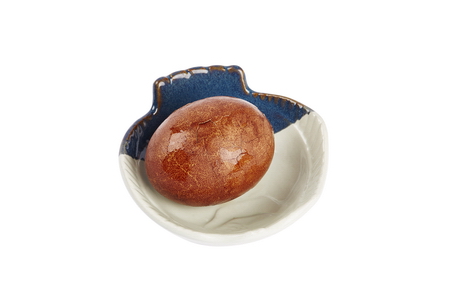Healthy diet
Essential q-3 fatty acids for office workers
The working people living in China may not realize that the dietary structure of our country is different from that of foreign countries, and the source of nutrition supplement is also different. Q-3 fatty acid is a typical example. The intake of q-3 fatty acids in Chinese office workers is far lower than the minimum intake recommended by the international authority. Therefore, office workers should scientifically supplement dietary fatty acids. Because unsaturated fatty acids are essential fatty acids for human body, and the human body itself can not be made, only from the diet. Why do office workers need to supplement q-3 fatty acids?
Q-3 fatty acids include linolenic acid A1A, EPA and DHA. Among them, the A1A of q-3 fatty acid can promote the absorption of nutrients into the body, enhance the sensitivity of cells to insulin, and prevent the occurrence of diabetes. Office workers need long-term mental activities. Adequate DHA is conducive to enhance the transmission of brain nerve information, can maintain brain function, and plays an important role in improving memory. Office workers watch computers every day, and eating q-3 fatty acids helps to protect their eyesight. DHA of q-3 fatty acids is abundant in retinal cells in the form of phospholipid, which is very important for light stimulation and transmission of retinal photoreceptor cells. EPA has the function of reducing triglyceride and cholesterol in blood, promoting blood circulation, reducing thrombosis and reducing the incidence of cardiovascular and cerebrovascular diseases.
If working people want to live a long and healthy life, they must have enough n-3 fatty acids. The diet rich in q-3 fatty acids is not only beneficial to the heart and blood pressure of office workers, but also to the prevention and treatment of diabetes, depression, cancer, rheumatoid arthritis and so on. Office workers want to eat q-3 fatty acids, can eat more nuts and other food. Fish oil in the sea and nuts, linseed oil and olive oil in plants contain a lot of q-3 fatty acids.
In China, the intake of q-3 fatty acids is seriously deficient. The director general of the Chinese society of nutrition pointed out that compared with the reference intake, the proportion of dietary q-6 and q-3 polyunsaturated fatty acids in office workers was higher. The intake of q-3 long chain polyunsaturated fatty acids, especially DHA and EPA, was significantly lower. On the other hand, the reason is that the health function of q-3 fatty acids, especially the function of helping brain development, is not well understood by the office workers, and the diet structure is not well adjusted, so it is affected.
Some organizations suggest that office workers should take 250-2000 mg DHA and EPA every day. According to the data provided by scientific research institutions, office workers need at least 812.5g edible oil every day to meet the needs of human body for DHA and EPA.
How to quickly supplement fat
In today’s society, thin is the beauty. In order to keep slim, many office workers almost don’t eat fatty food, which is very harmful to their health. Fat, protein and sugar are the material basis of life. They are not only important for maintaining body temperature and protecting internal organs, but also can provide essential fatty acids for human body, which is helpful for the absorption and utilization of fat soluble vitamins such as vitamin A and vitamin D.
Therefore, in order to have a healthy body, office workers should pay attention to the supplement of fat, especially for the people who lose weight and lead to insufficient body fat, but also need to supplement fat in time. So, how should office workers supplement their fat?
The oil used in daily cooking and the oil contained in the food itself are the two main sources of fat. Generally, the fat content of the kernel is the highest, followed by all kinds of meat, and the content of vegetables and fruits is less. Rich in fat nuts: sesame, walnuts, pine nuts, peanuts, almonds, sunflower seeds, etc. Here are some foods with high fat content. If you want to add fat quickly, you may as well eat them often.
(1) Fat meat and animal offal. Various kinds of meat often contain more fat, especially in fat meat and animal viscera, which not only contains rich protein and mineral, but also contains a lot of cholesterol and saturated fat. In the daily diet, office workers can eat some fat and animal viscera to supplement the body’s fat.
(2) Cream and its products. In cream and its products, it contains a lot of fat, which is a high-fat food and can quickly supplement fat. But if office workers often eat, it is easy to gain weight. In addition, it should be noted that it is not suitable to eat cream and its products on an empty stomach, otherwise, it will be uncomfortable with acid regurgitation and heartburn.
(3) Fried food. Fried food, especially fried meat, has a high content of fat. On the one hand, vegetable oil contains a lot of fat. On the other hand, meat itself also contains a lot of fat. When office workers eat fried food, they must pay attention to the safety of the oil, and should not eat more and often.
(4) All kinds of beans and products. Legumes are rich in nutrition. In addition to high-quality protein, they are also rich in fat. Such as soybeans, black beans, red beans, tofu, beancurd, etc., all contain more fat, and bean food can be said to be the best source of fat, eating more will not cause any adverse effects on the body. Therefore, if you want to quickly add fat, you can often eat beans and their products.
Here’s a quick three meal diet for office workers.
Breakfast: a cup of soymilk, a boiled egg, a bowl of congee.

Extra meal: a handful of raisins and peanuts, a milkshake.
Lunch: a proper amount of meat, a bowl of rice, a cup of yogurt, a boiled vegetable, a high fiber biscuit.
Extra meal: one tea egg, one fruit shake.

Dinner: one fish, one bowl of noodles, one lettuce salad, one ice cream or yogurt.

Add food: pineapple, tomato, half an hour before going to bed to drink a cup of warm milk.
AA eating comprehensively can ensure the health of pregnant mothers
After pregnancy, expectant mothers have a lot of problems to pay attention to in their diet. They can’t do what they want. For pregnant mothers of office workers, they should eat a comprehensive and balanced diet.
Pregnant mothers of office workers should learn to eat “good”;. Pregnant mothers of office workers should learn to arrange their meals scientifically. They should not only emphasize comprehensive and reasonable nutrition, but also avoid malnutrition or excess. Reasonable and comprehensive nutrition can provide all kinds of nutrients for the development of various organs of the embryo. At the same time, we should also consider the characteristics of the reaction during pregnancy and choose a diet suitable for the taste of pregnant women.
In order to meet the needs of the fetus, the pregnant mother should appropriately increase the intake of heat energy. The placenta needs to store some energy in the form of glycogen, which is then released into the blood in the form of glucose for use by the fetus. The energy that the fetus can use is mainly glucose. The pregnant mother should increase the intake of carbohydrate to ensure the energy demand of the fetus. Pregnant mothers should take at least 150 grams of carbohydrates every day to avoid the accumulation of ketones in their blood due to hunger, which will have adverse effects on the development of their brain after being absorbed by the fetus. The amount of fat should not be too low to prevent fat soluble vitamins from being absorbed.
Pregnant mothers with severe vomiting should eat more basic food such as vegetables and fruits to prevent acidosis. Pay attention to the food should be light, avoid eating too greasy and stimulating food. Pregnant mothers should eat cooked food, especially when eating out, to avoid raw or half life meat.
In addition, pregnant mothers should not be choosy about working meals and avoid eating foods that are not good for pregnancy. At this time, we can no longer eat what we like, but we should choose food from the perspective of nutrition to reduce the requirements of taste.
It is difficult to guarantee the quality of the fried food in the working meal. Therefore, pregnant mothers should not eat fried food in working meals. The dishes in the working meal are often either salty or light. * mothers should eat less salty food to prevent water and sodium retention, causing blood pressure to rise or feet edema. Other spicy, heavy food should also be judiciously rejected.


